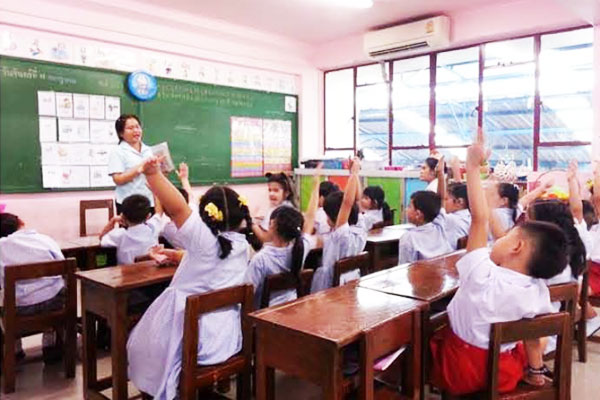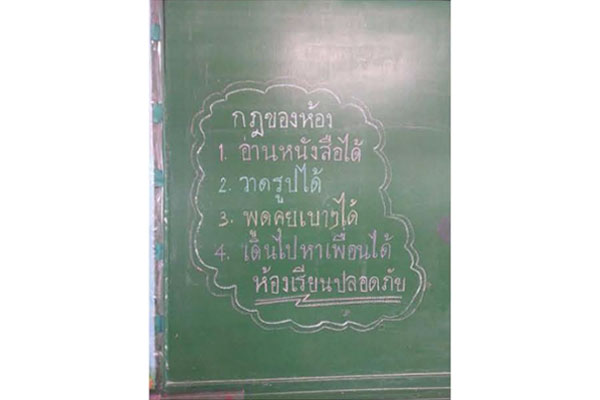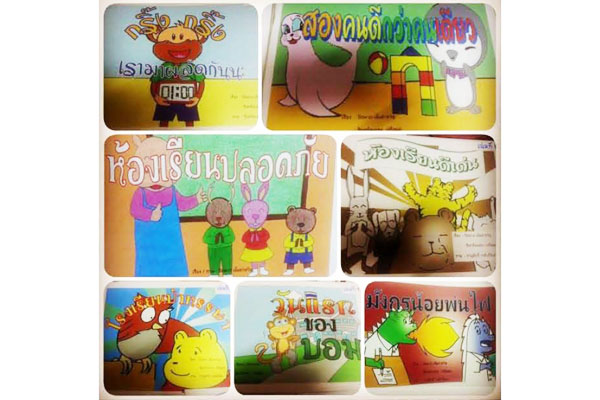The 101s Storybooks Intervention Program to Promote Executive Function Development in Preschool: The Case Study in Thailand
National Institute for Child and Family Development, Mahidol University



เด็ก ๆ ยกมือตอบวิธีการใช้เทคนิค 101s การสร้างวินัยเชิงบวกในการแก้ไขปัญหา
The 101s Storybooks Intervention Program to Promote Executive Function Development in Preschool: The Case Study in Thailand
National Institute for Child and Family Development, Mahidol University
Title :
The 101s Storybooks Intervention Program to Promote Executive Function Development in Preschool: The Case Study in Thailand
Researchers :
Piyanarth Themkumkwun
Nuanchan Chutabhakdikul
Nootchanart Ruksi
Panadda Thanasetkorn
The quality of the interactions is crucial factor determining children’s executive function (EF) development. EF, a set of mental and cognitive processes drawing previous experiences relevant to a current situation for planning, prioritizing, initiating, making decision, solving problems, controlling emotions to achieve a goal-directed behavior, is required for learning, school readiness, academic performance, social relationships, career and life achievement. Since early childhood is critical period in EF development, research based best practices in positive interactions in preschool is needed. In Thailand, the 101s positive discipline (101s) teacher- training program, the nationally honored program in the US for coaching teachers how to use positive discipline techniques in preschool classrooms, has been implemented to enhance positive interactions in preschool classrooms and promote children’s social-emotional and EF skills. Previous research has suggested that the 101s teacher-training program could be an alternative intervention program to promote positive teachers’ interaction practices and reduce verbal and corporal punishment in the classrooms. However, the benefit of the intervention program was limited to only the interactions between teachers and children, not peer interactions. Therefore, the current research focused on the 101s training program for preschoolers. The aims of the study were to investigate the impact of the 101s Storybook intervention program on preschoolers’ EF skills and 101s social-emotional skills. The sample was 61 five – year – old children in three preschools in Thailand. One school was assigned to be the intervention group where the sample (n = 29) received the 101s storybooks program. The other 2 schools were assigned to be the control group where the sample (n = 32) in the control group received no intervention. Before and after implementing the program, the teachers of the sample were asked to rate the sample’ s EF skills, using Executive Function assessment in Mahidol University version (MU-EF), and the 101s social-emotional skills, using the 101s Social-Emotional Checklist. A series of MANCOVA was performed to examine the differences in the mean scores on EF skills and the 101s social-emotional skills between the intervention and control groups. The results showed the positive impact of the 101s storybooks program on students’ EF skills and the 101s social-emotional skills.



Publishing : The 101s Storybooks Intervention Program to Promote Executive Function Development in Preschool: The Case Study in Thailand, INTED2017 Proceedings, pp. 4179 – 4187.
Key Contact Person :
Asst.Prof.Dr.Panadda Thanasetkorn
National Institute for Child and Family Development, Mahidol University